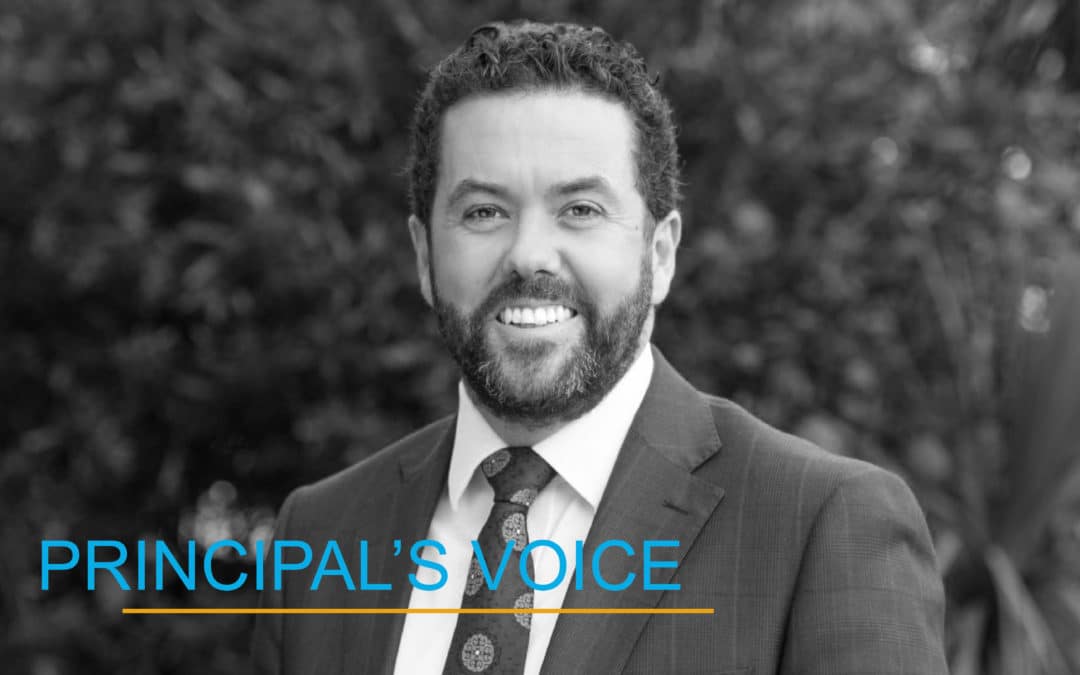“Do you not know? Have you not heard? The Lord is the everlasting God, the Creator of the ends of the earth. He will not grow tired or weary, and his understanding no one can fathom. He gives strength to the weary and increases the power of the weak. Even youths grow tired and weary, and young men stumble and fall; but those who hope in the Lord will renew their strength. They will soar on wings like eagles; they will run and not grow weary, they will walk and not be faint.”
– Isaiah 40:28-31
Geoff Masters, the author of the recent NSW Curriculum Review, writing in a follow-up essay, “Time for a Paradigm Shift in School Education”, lays out a case for changes in education. In doing so, he comes back to some key ideas that, while not new, are critical for student learning and academic success. The difficulty in education is not in knowing what to do, we already know what works, it is in doing it well. It is meeting students where they are at, bringing them on the learning journey, and judging success based on growth (or progress) rather than on raw performance. This is easier said than done, but it is also what we have been working very hard towards at NBCS.
“In general, learning is maximised when learners are given stretch challenges appropriate to the point they have reached in their learning. As long ago as 1968, educational psychologist David Ausubel wrote, ‘If I had to reduce all of educational psychology to just one principle, I would say this: The most important single factor influencing learning is what the learner already knows. Ascertain this and teach him accordingly’. Psychologist Lev Vygotsky made a similar point in defining a learner’s ‘zone of proximal development’ – the region in which the learner’s likelihood of successful learning is maximised.” – Geoff Masters. Our aim is to know our students well so we can help them to grow from where they are, wherever it happens to be.
Likewise, success is something that is measured against self in the first instance, and according to progress rather than against others and simply by marks. “Rather than defining success only as performance against year-level expectations, a student is considered to have learnt successfully if they make excellent progress over time. In other words, successful learning is equated with, and inferred from, increasing levels of knowledge, understanding and skill. A consequence of this definition of learning is that less advanced students who make excellent progress over the course of a year are considered to have learnt successfully, even if they are still performing below the level hoped for by this time in their schooling. And more advanced students who make limited progress over a year are considered to have learnt less successfully, despite their relatively advanced status.” – Geoff Masters.
CONGRATULATIONS
Congratulations to Annabelle Green and Lachlan Murnain of Year 3 for their prize-winning submissions in the 2020 STANSW Young Scientist Awards in the Scientific Investigation category. Congratulations to Year 12 student Michael Eksteen, for his prize-winning submission in the 2020 STANSW Young Scientist Awards. Michael’s project, Investigating the Thermodynamics of a Combustion Engine, was selected from over 800 submissions and is a reflection of his dedication to the study of Physics. Congratulations also, to Grace Charlesworth of Year 2, whose is now a published illustrator. Her work appears in the recently released illustrated copy of JK Rowling’s new work, Ickabog. These accomplishments are well-deserved and demonstrate the diligence, curiosity, and deep love of learning in our students.
“The first order of business is not to persuade but to understand those who disagree with us: suspend, at least for a while, the “understanding” we assume we have and judgment of who’s right; enter into their world to see and to feel it from within; learn how they think and why.” – Miroslav Volf
Tim Watson
Principal




